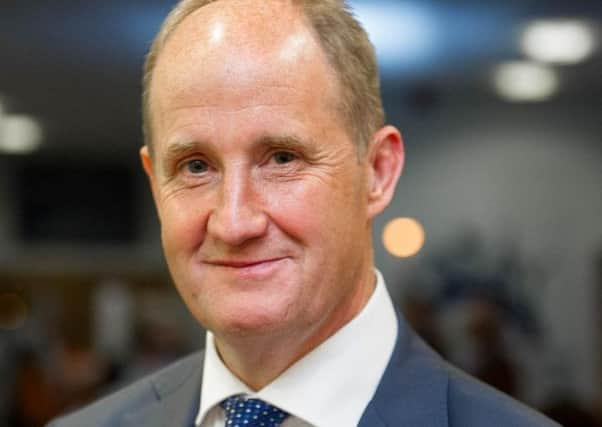Kevin Hollinrake: Living wage rule shift puts care lifeline at risk


However, a much bigger question mark currently hangs over services for people with learning disabilities, which make up 39 per cent of the total adult social care spend in England.
Conservative-led governments have taken the right approach to caring for some of the most vulnerable people in society. The terrible events at Winterbourne View started a step-change in the direction of policy travel, with a focus on providing care in the community, rather than in-patient hospital settings.
Advertisement
Hide AdAdvertisement
Hide AdProviders of local authority-commissioned care for people with learning disabilities are made up of charity, not-for-profit and private-sector organisations that have weathered the troubled financial times of recent years.
Yet, by delivering services on hourly arrangements to local councils, they lack any meaningful market opportunity and struggle to cover large wage budgets. Unlike providers of elderly care, they do not receive fees from ‘self-funders’.
Ministers recognise that many people with learning disabilities need to be cared for around the clock, with high-intensity care packages that meet their needs while allowing them to retain their independence in their homes. Yet, despite pursuing a fundamentally sound approach to redesigning front-line services, I fear the Government needs to urgently address the complex issue of sleep-in shifts.
I recently asked Theresa May at PMQs if she was aware of the number of organisations facing closure as a result of the National Living Wage’s application to ‘sleep-in’ shifts. These are overnight care arrangements, provided by staff who sleep on-site, responding to emergency requests for support.
Advertisement
Hide AdAdvertisement
Hide AdFor approximately 40 years, care providers have paid staff for sleep-ins at a flat-rate, often somewhere between £35-45. However, various employment tribunals and appeals prompted a recent change in guidance issued by the Department for Business, Energy & Industrial Strategy. It appears that Government now requires providers to pay staff working sleep-ins the National Living Wage, and is ready to unfairly penalise organisations by forcing them to make back payments of up to six years.
The providers I have spoken to in my constituency, at meetings of Parliament’s Cross-Party Working Group on Learning Disabilities, and have heard evidence from at the Communities and Local Government Select Committee, are very worried.
Having entered agreements with local authorities in good faith – and in line with departmental guidance that has subsequently changed fundamentally – many organisations are now facing investigations from HMRC that threaten their existence.
Classifying sleep-ins as ‘working time’, and therefore applying the National Living Wage, has caused acute problems for a sector that cares for vulnerable people 24 hours a day. The sector’s total liability, going back six years, is £400m at the most conservative estimates, and going forward, providers would collectively have to cover an additional £200m a year.
Advertisement
Hide AdAdvertisement
Hide AdIn short, the sector urgently needs support from Government or services will fail. Already we have seen providers leaving the sector because the care packages being offered by local authorities are simply uneconomic. We cannot afford to allow a simple oversight in employment policy to bring down the organisations that look after people for whom care is a lifeline.
The Prime Minister assured me that departments are looking carefully at the sleep-ins issue. Having engaged extensively with providers and service users, my colleagues in Parliament and I have put forward our proposed remedies to the Government.
As I see it there are currently two issues at stake. Ending the retrospective collection of back pay liabilities and levying of fines by HMRC is the first; these investigations must be suspended immediately, before we get any closer to a situation where providers are going to the wall.
The Government must then eliminate or fully fund the liabilities and remove the fines – this strikes me only as fair, given that the change in departmental guidance did not give care organisations a chance to adapt.
Advertisement
Hide AdAdvertisement
Hide AdThe second is developing a prospective framework in which providers can operate with clarity. A solution for the future payment of staff working on sleep-in shifts needs to be applied swiftly across the sector, so that levels of care can be maintained.
The learning disability provider market is a fragile one that is currently on the brink of collapse.
By acting now, we can ensure that community based-care remains sustainable in the long term and quality services are maintained.